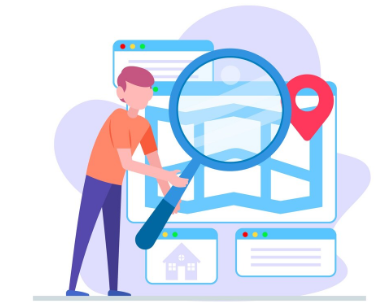How Many Pages Should a Website Have? Discover the Truth!

When I first started building websites for clients, the most common question I received wasn’t about design or tech—it was “How many pages does my website need?” And honestly, the answer always depends. Every business is different—your goals, target audience, industry, and even the type of site you’re building can significantly affect this decision. Whether you run a local service or a full-fledged e-commerce store, the number of pages should be based on your actual needs and what you want your users to experience.
For a small business, having a clear homepage, about, contact, and privacy policy might be essential—just enough to deliver the core message and build credibility. But for a growing online store, you may need additional functionality and dozens of pages to support categories, products, and resources. The truth is, there is no one-size-fits-all guide. You need to understand your case, ask the right questions, and focus on providing quality content that offers valuable information. Don’t worry about making it huge—just make it good.
When I work with clients, I always dig into their specific needs, their audience’s expectations, and their long-term success goals. I’ve seen web structures with 5 pages perform better than others with 50, just because they were laser-focused and user-friendly. A well-structured site can also boost your SEO, improve engagement, and enhance the online experience. The best advice? Keep it simple, yet clear. And if you’re ever curious how to find hidden links on a website, you’re probably already thinking like someone who wants their website to perform at its best.
How Many Pages Does My Website Have?
When helping small businesses build their first website, I often get asked how many pages are actually required. The number really depends on the type of business, its goals, and the nature of its online presence. A good starting point is usually around 5 to 15 pages, especially for those aiming for a simple, yet strong footprint. If your content is crafted to improve search engine visibility and offers a smooth, intuitive user experience, you’re already on the right path. There’s no one-size-fits-all solution — your needs may vary, but a multi-page site is often a wise choice.
From my experience, I always look at what’s common across different industries and the types of web pages considered popular or standard. Whether your purpose is to educate, sell, or simply establish a presence, it helps to restate your goals clearly. The average business website includes a mix of essentials, but you should tailor your structure based on what your audience needs — and that can widely vary.
Finding the Ideal Page Count for Your Website
In my early days building websites, I believed there was a one-size-fits-all approach to the number of pages. But I quickly learned that every website is a unique scenario. The pages you need can vary significantly depending on your industry, business goals, and your audience’s needs. For instance, a large eCommerce portal may require dozens of pages to showcase its product offerings effectively, while local small businesses usually manage around 5-10 pages to convey their message adequately.
What plays a crucial role is understanding your competition, industry type, and customer expectations. Before launching, I always start by researching competitors’ websites, which often provide valuable insights into the appropriate structure and number of pages needed. A thoughtful approach helps ensure your site not only meets but exceeds standards, aligning with and enhancing user experience. You shape your content around your target audience’s interests and expected actions, which can’t be overstated. Adding unique sections or features can also improve engagement. Generally, you’re aiming for an average benchmark that suits your brand identity and goals.

Must-Have Website Pages for a Strong Foundation
When building a website, one of the biggest questions I’ve faced for my own clients is: how many pages should it have? The answer is simple yet depends on your goals. Every site needs a strong backbone to ensure smooth user experience, strong SEO, and meet legal compliance. Whether you’re launching a new site or refreshing an old one, you should always start with a standard set of pages. These core pages create your brand’s first impression and guide visitors to the right actions.
Homepage
Let’s begin with the Homepage. This is your initial contact point, your primary entry point, and needs to be straightforward, attractive, and easy to navigate. A good landing page includes calls to action, key sections, and links to other parts of the site. It should give a quick summary of your main offerings and invite users in with call-to-action buttons that lead them deeper into your services or products.
About Us
Your About Us or About Us page brings your company history, mission, and values to life. This page is a chance to show your identity, share your differentiators, and introduce your team. It builds a personal connection and increases authenticity, which matters deeply to potential customers. In my experience, writing this page with transparency really helps drive trust.
Contact Us
Next comes the Contact Us or Contact page. It must offer all contact form, phone number, email address, and physical address options. In service-based industries, this page can be a top lead generator. Many businesses use landing pages just for organizing contact information. You’re not just reaching your audience, you’re connecting with them and boosting satisfaction.
Privacy Policy
The Privacy Policy is one of those pages often skipped but is actually a legal necessity. It should clearly explain how you collect and use user data, including your data collection, usage, and protection practices. You need to assure visitors their personal information is handled responsibly. This builds trust and proves credibility in today’s privacy-sensitive world.
Terms and Conditions
Equally important is your Terms and Conditions or Terms of Service page. These outline your rules, guidelines, and terms of website usage and transactions. For anyone selling products or offering services, this page is a safety net.
Blog Page
Lastly, to increase engagement and demonstrate expertise, create a Blog Page. Here, you can share insights, tips, updates, and industry news. Regular posting helps you rank for search queries, build visibility, and position yourself as an expert.
FAQ Page
Adding Testimonials, Reviews, and an FAQ Page also boosts trust, clarifies queries, and handles common concerns—saving time on customer support and increasing efficiency.
Tailoring Extra Pages to Your Business Goals
From years of building sites, I’ve learned to begin with core pages and then, based on the type of business, choose the right number and type of additional pages. A training portal might add a resource center and knowledge base bursting with useful information for curious visitors, while a café may lean on a vibrant events page plus clear terms & conditions to boost credibility. By pairing these unique pages with your site’s specific functions and growth objectives, you drive user engagement and help potential customers find the information they need for informed decisions, turning basic website pages into truly relevant pages that power your business.
Factors Influencing How Many Pages You Need
The number of pages on your website depends on several factors that directly influence how your site performs for users and search engines. First, consider the type, nature, and industry of your business. For instance, eCommerce sites often require many web pages to showcase products, categories, and detailed descriptions, while service-based businesses may only need a few core pages to highlight their services.
Equally important is your content strategy. If you plan to post blogs or articles regularly, that increases the total page count, especially if your blog posts are designed to target a variety of topics and long tail keywords. A smart content plan also creates multiple entry points for visitors, adding value and improving the experience of your audience. High-quality content boosts your SEO goals by improving your rank in search queries. From my experience, organizing content into multiple sections using smart design and page organization can deliver a much better user journey than cramming everything into a single long page. Understanding these details helps you create an optimized structure without overwhelming your user, making it more ideal to split content into multiple pages than relying on sheer numbers.
What’s the Right Page Count for SEO Success?
When people ask how many pages their website needs for good SEO, the answer isn’t a specific number—but typically, having an average of 12 to 30 well-optimized pages brings the best results. In my experience, many individuals who don’t know much about SEO feel overwhelmed, but it’s actually quite simple: focus on strong keyword research for every page and make strategic decisions. Use proper Title Tag, Meta Description, H1, headline, and structured H2 subheadlines, while ensuring the body copy and internal link structure support your core topics and angles. If you’re wondering how to find information about a website, all this information should be shared clearly to help your content rank better and apply well to your users’ intent.
Is There Really a Page Limit for Your Website?
There is no real limit to how many pages your website can have — the number can go from tens, to thousands, even millions depending on the type of content or business you run. In my experience building ecommerce platforms and service sites, I’ve seen companies create separate pages for every product, zip code, or even detailed geography-based offerings. While some pages may seem unnecessary, they often serve a purpose in SEO or user targeting. It may sound crazy, but a high page count isn’t uncommon when scaling digital presence properly.
Why a Multi-Page Website Makes Sense
From personal experience working with small businesses and growing startups, having a multi-page website brings clear advantages. It helps you organize your content by type, allowing visitors to easily navigate and find what they need. Each page can be dedicated to a topic, product, or service, which creates a more structured and positive experience. For example, a separate blog or testimonial page adds more credibility and builds trustworthiness, especially when trying to show your professionalism and business value.
Not only that, but search engines prefer well-built websites with distinct pages because they offer more opportunities for optimization. You can target specific keywords on each page, improving ranking, traffic, and your online presence. Plus, having a clear menu, organized systems, and strategically placed calls to action ensures users engage, stay longer, and take the next step. With more space, you can showcase your services, write in-depth about your offerings, and build a comprehensive platform that truly supports your growth.

Build Your Multi-Page Website with Ease
Creating a multi-page website is one of the smartest investments for boosting your online presence. With the right structure and well-planned content, your site can significantly enhance usability and strengthen your brand’s visibility. A well-positioned business benefits when every page has a purpose, whether to inform, convert, or support. That’s why I always recommend using intelligent tools like Network Solutions’ AI Website Builder. It helps you build, customize, and launch with ease, even if you lack deep building or design knowledge.
Their AI-powered tool is incredibly intuitive and simplifies the entire process. It provides intelligent recommendations, along with user-friendly templates, so your final design looks polished and perfectly aligned with your brand. I’ve found it especially useful when working with clients who want fast results without sacrificing quality. When you’re ready to start, it only takes a few clicks to turn your idea into a stunning, functional website. With everything from layout to content planning streamlined, you can focus on what truly matters—meeting the needs of your audience and growing your business to the next level.
How Many Pages Should a Website Have
From my experience, there’s no specific rule for the exact number of pages a website should have, but around 12 to 30 is a good average to aim for when targeting the best SEO results. What matters most is adding useful, updated, and new content that meets users’ needs. Each page must serve a clear purpose and be vital to your overall site structure. This approach helps in steadily improving search visibility and overall site performance, making your SEO efforts more impactful and strategic.
Is it better to have more or less pages on a website?
In practice, deciding between a single page layout and a multiple pages structure comes down to how much content you have available and how you plan to optimize it: the bigger build gives you more chances to pack targeted SEO strategies into every section, while a leaner site with less material requires hitting the point far quicker to funnel readers down a clear path; whichever route you choose, make sure each panel can be refreshed, passed internally through links, allow fresh topics to surface, and potentially gain extra engagement and conversions that steadily improve performance.
What Is the Average Number of Pages on a Website?
The average number of pages on a website typically falls between 12 and 30, but this can vary based on the purpose of the site, the type of business, and the industry it serves. A standard web layout usually includes common, popular pages like Home, About, Services, and Contact, but depending on your needs, you may expand further. From personal experience, small businesses may keep things simple, while larger companies often require more pages to handle complex content or offerings.
What Pages Must a Website Have?
No matter the scale of your project, a solid starting point for any website is to include essential pages like a homepage that quickly engages visitors, a products or services page, an about page, a contact page, and legal pages like privacy policy and terms and conditions. These help in building and organizing your site effectively.
ABOUT ME !!

Maryam Ahmed
With a passion for modern design and functionality, I create custom websites that are visually appealing, dynamic, and SEO-friendly. From personal blogs to business platforms, I bring your vision to life with creative design and expert development.
RECENT POSTS

Top Web Design Services for Modern Businesses

10 Web Design Tips to Make Your Website Stand Out in 2025

Website Development Basics: A Simple Guide for Beginners



